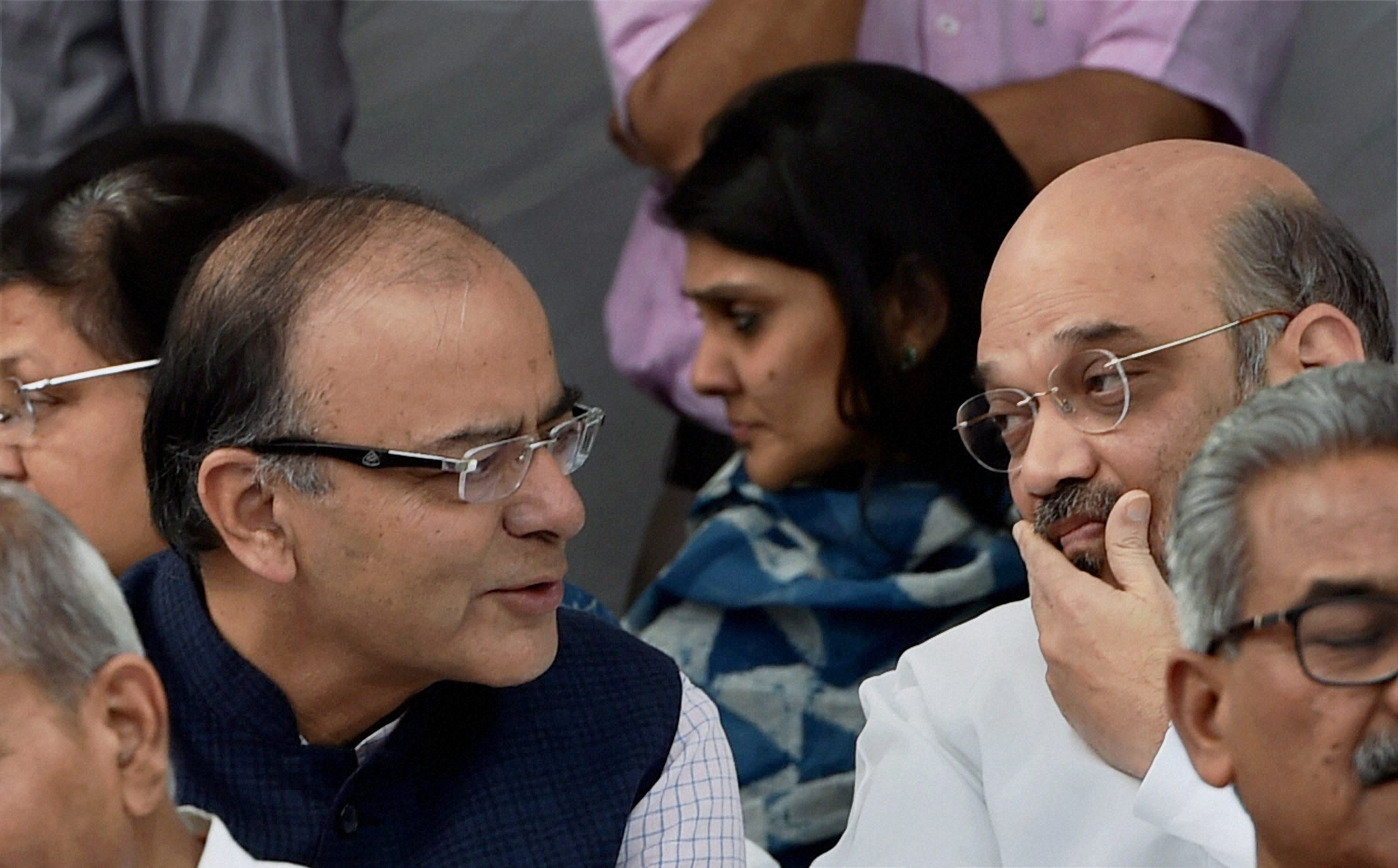NDA = UPA III
Ravi Shanker Kapoor | February 27, 2016 11:57 am

There is little surprise in Prime Minister Narendra Modi’s recent Leftward turn. Aadhar, the Mahatma Gandhi National Rural Employment Guarantee Act (MGNREGA), and now massive funds for the National Food Security Act—it is increasingly becoming evident that he has no intentions of breaking the Nehruvian Consensus. The so-called Modinomics is just statism with a saffron tinge.
According to a report in The Economic Times (February 3), “the government is gearing up to announce a mammoth rollout of the National Food Security Act (NFSA) with an outlay at Rs 130,000 crore, will be double the number earmarked in this year’s Budget.”
Whatever happened to minimum government-maximum governance? The Modi regime is saying and doing everything that the Congress-led United Progressive Alliance used to say and do. Whatever happened to the promise of minimum government-maximum governance? Or was it just an election promise? Or, to be precise, a jumla (idiom), to be taken neither literally nor seriously?
At the heart of the matter lie two characteristics of the ruling dispensation: first, its belief in gradualism or incrementalism; and, second, its intellectual bankruptcy. Sanguine that they would remain entrenched in New Delhi for at least a decade, Bharatiya Janata Party leaders have convinced themselves that they have ample time to do rashtra-nirman. Also convinced that they are efficient and incorruptible, despite adequate evidence to the contrary, they think that they would succeed slowly and steadily. I have written enough to prove the erroneousness of this line of thinking, so I would not elaborate further on this point.
In fact, the sanguineness emanates from the intellectual bankruptcy of the saffron party—at least of those who call the shots in it. For the powers-that-be fail to comprehend the truth that the 2014 electoral mandate was more a consequence of Sonia Gandhi’s endeavor to revive Nehruvian socialism in the 10 years of her misrule (Manmohan Singh was just the mask) than the result of Modi’s energetic electioneering. Of course, Modi’s charisma and efforts did play an important role, but the pitch for the verdict was by prepared by the Congress-led United Progressive Alliance.
By stopping—and in some cases reversing—economic reforms, Sonia enlarged the size, scope, and odiousness of the state. This strained the exchequer, dampened investor sentiment, and occasioned corruption of astronomical proportions. It was expected of Modi to do away with the resuscitated socialism. Unfortunately, Modi & Co. attribute the fiasco of UPA rule to fortuitous factors—a weak Prime Minister, excessive intervention by Sonia, incompetence and venality of ministers, etc. It is like seeing evil in the persona of, say, Hafiz Saeed rather than in the supremacist ideology he represents.
This is not exactly surprising, for the few, if any, have ever accused the BJP of intellectualism. Lacking cerebral prowess to discern the inherent and fatal flaws of dirigisme, the current regime sees no incongruity in blaming the Congress for all the ills the country is afflicted with and, simultaneously, in adopting the ideas and policies of the grand old party. Great minds, they say, discuss ideas, whereas small minds discuss people. It seems there aren’t any great minds in the BJP; at least they are not in the reckoning.
So, Modi has started talking like communist leaders and pinkish intellectuals. He recently ridiculed liberalizing economists and industry representatives by equating tax incentives with subsidies. “We must ask ourselves whether this difference in language also reflects a difference in our attitude? Why is it that subsidies going to the well-off are portrayed in a positive manner?” he said.
The total revenue foregone due to fiscal incentives to corporations is over Rs 62,000 crore, he said, adding that the beneficiaries of tax-free dividends and long-term capital gains on stocks are well-off people. “Yet these are rarely referred to by those who seek reduction of subsidies. Perhaps these are seen as incentives for investment. I wonder whether, if the fertilizer subsidy is re-named as ‘incentive for agricultural production,’ some experts will view it differently.”
At least, now the Prime Minister cannot be accused of saying something and doing something else; he is going Leftward while humming lal salaam lyrics. Get ready for UPA III.































